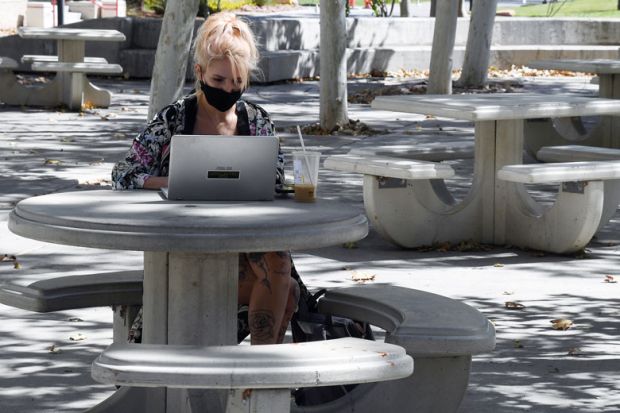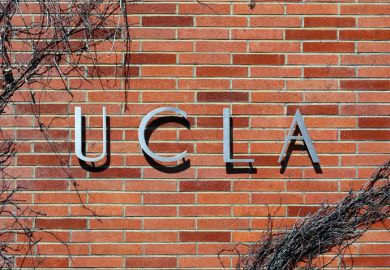Two years into the pandemic, US students are having some initial success in suing their institutions for abruptly moving courses online, aided by the pre-Covid custom of colleges charging less for virtual formats.
The shift from in-person teaching has produced more than 200 lawsuits across the US, most commonly involving students who contend that online alternatives are lower quality and therefore merit lower tuition rates.
None of the cases has yet produced a courtroom verdict, although judges have agreed in several instances to allow complaints to move to trial, and a few institutions already have accepted settlements.
Overall, experts said, the success to date of colleges and universities on getting lawsuit dismissals has been very fact-specific, making it difficult to draw broad conclusions about how the courts will ultimately judge the in-the-moment responses of US higher education to the pandemic.
But one clear pattern seems to be the idea that institutions are generally given wide latitude on how they choose to teach their students, but are vulnerable if they came to the pandemic with a history of offering online degree programmes and pricing them lower than their in-person provision.
“Courts have looked at that and said, with those two facts at the same time, you can’t win on a motion to dismiss,” said Audrey Anderson, a higher education attorney and former general counsel at Vanderbilt University.
Some leading examples of judges allowing lawsuits to proceed under such circumstances – where institutions allegedly made clear that they valued their online variants as worth lower fees – include George Washington University, American University and Quinnipiac University.
Such rulings against the dismissal of cases seems promising, said Roy Willey, an attorney representing students at American and in dozens of other cases across the US. “From my perspective,” he said, “these cases are going very well for the students.”
The largest settlement to date involves Columbia University, which paid $12.5 million (£10 million) to its students. A federal judge in the case rejected student demands for a tuition reimbursement, dismissing the idea that the university gave them an implied expectation of in-person teaching. But the judge refused to dismiss the demand from some 30,000 plaintiffs over the university’s charging fees for on-campus services, such as access to gyms and libraries, that could not be used.
Nova Southeastern University got a similar message from a federal court in Florida that affirmed its right to move classes online during the pandemic but allowed further proceedings over student fees.
Beyond Columbia, settlements to date have generally been for relatively small amounts, compared with the size of their student populations. They include Rutgers, the State University of New Jersey concluding a case for $5 million, Barry University closing one for $2.4 million, Lindenwood University ending a claim for $1.65 million, and Southern New Hampshire University paying $1.25 million.
Universities are defending themselves against various other complaints related to Covid, including faculty who want the right to avoid in-person formats, and others who oppose mandates for testing and masks.
Such faculty include Richard Burt, a tenured professor of English at the University of Florida, who filed suit over being forced last autumn to teach classes in person even though he is at higher-than-normal risk of harmful consequences from Covid; and Todd Zywicki, a professor of law at George Mason University, who sued the institution over its Covid vaccine requirement. Professor Zywicki later dropped the case after the university allowed him a medical exemption.
Register to continue
Why register?
- Registration is free and only takes a moment
- Once registered, you can read 3 articles a month
- Sign up for our newsletter
Subscribe
Or subscribe for unlimited access to:
- Unlimited access to news, views, insights & reviews
- Digital editions
- Digital access to THE’s university and college rankings analysis
Already registered or a current subscriber? Login








